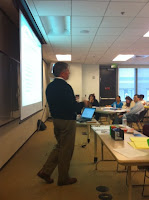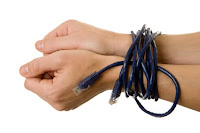Non-profit consultant and expert grant writer, Derek Link, shares some ideas for writing a grant abstract:
An abstract is a short summary of your grant narrative, it gives the reader the big picture and should motivate them to want to learn more about your proposal. You’ll be required to submit an abstract for most proposals, but it is rarely part of the scoring criteria. This does not minimize its importance however, because it may be the first part of your application the reader sees.
These are the basic components commonly requested in an abstract. Be sure to read the Request For Proposals (RFP) carefully to see if there is a specified outline for you to follow that may deviate from this list below:
- Statement of Purpose: Who is applying? What does this proposal do, who does it serve, where is it located? What is the proposed grant period?
- Goals and Objectives: List or summarize the goals and objectives that this proposal seeks to address.
- Management Plan: Summarize the key features that ensure your project will be professionally managed. Adequate budget, agency commitment, supervision, commitment of resoruces, etc.
- Evaluation: Describe the key features of your evaluation methods and plans which will ensure that the project is properly monitored and that outcomes will be accurately measured.
Remember that most abstracts are limited to a single page so you must be brief and to the point. I suggest that you write the abstract before you write your proposal so you have the whole proposal clearly in mind before you begin to write the detailed narrative.
——————————
Get more help to become a better grant writer. Become a member of GrantGoddess.com and gain access to hundreds of resources to imporve your skill.





